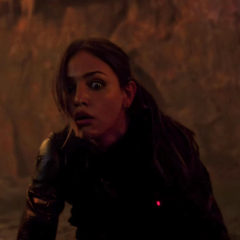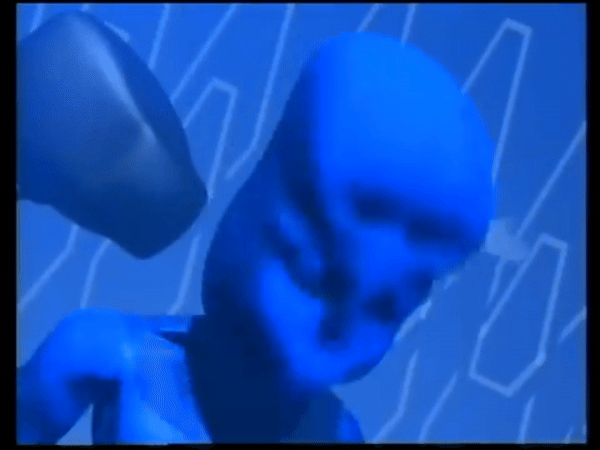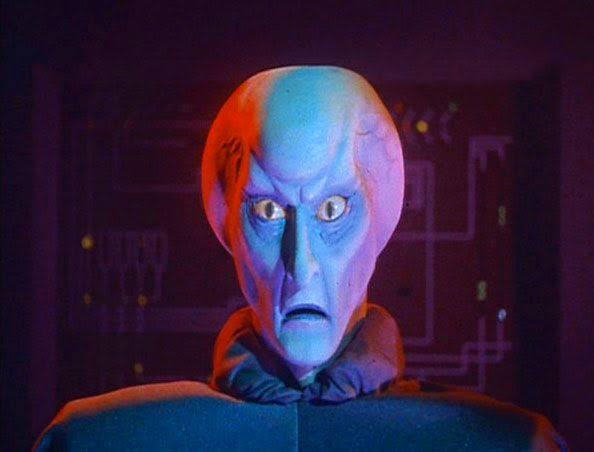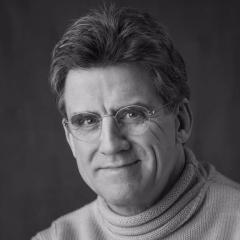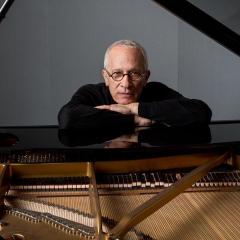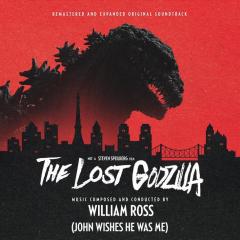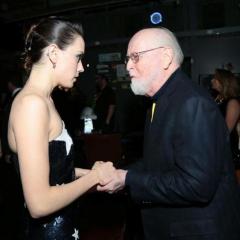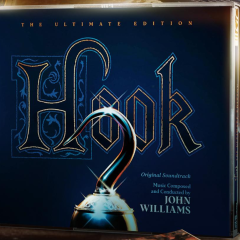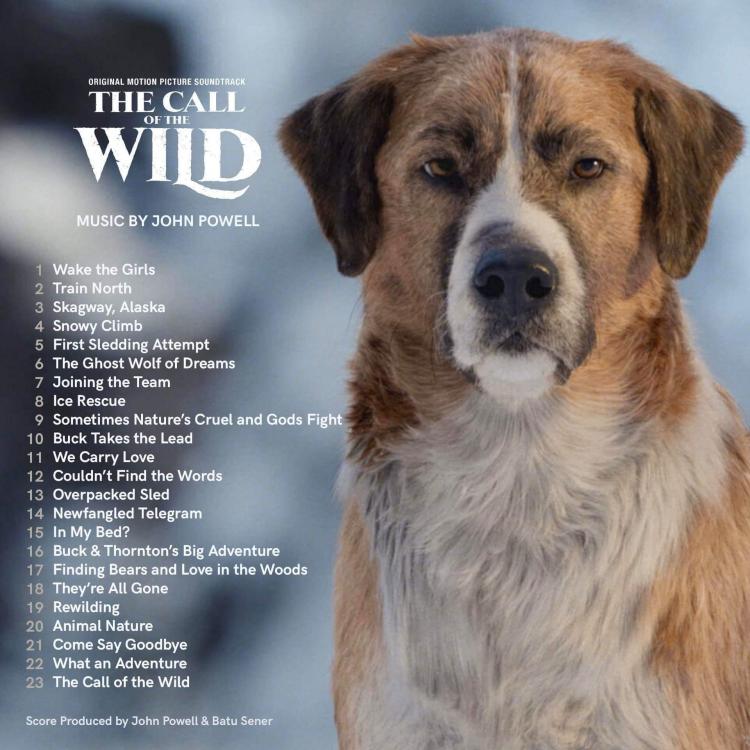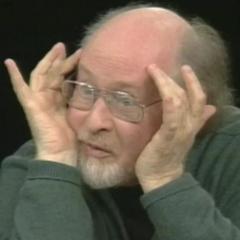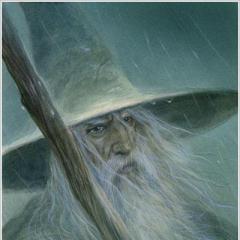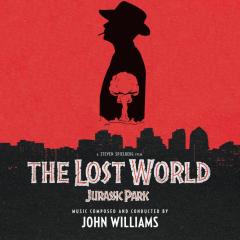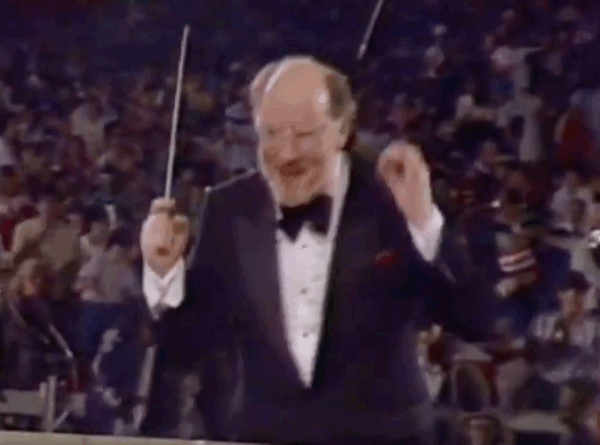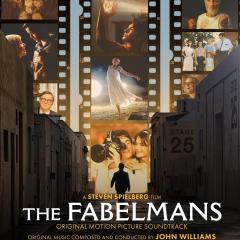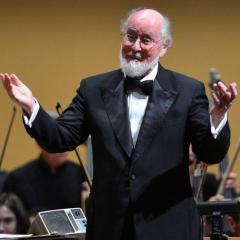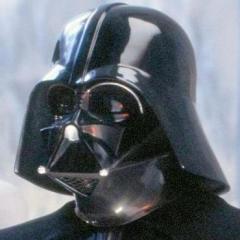Leaderboard
Popular Content
Showing content with the highest reputation on 25/01/20 in all areas
-
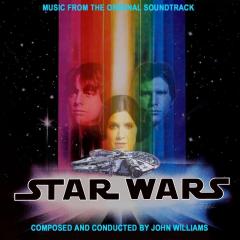
Star Wars Saga Could've Had Overtures
Smeltington and 6 others reacted to Andy for a topic
I've been tinkering with my playlists of the 9 Williams SW scores, and although not a brilliant observation, I am finding myself pleasantly "surprised" that the listening experience is quite wonderful if each film begins with a concert piece before the Main Title. I suppose in the post Fox Fanfare era, it makes even more sense to set a musical tone before the opening blast of the fanfare. It's rather nice to have The Rebellion is Reborn end on the same note as the opening note of the Main Title. Further, it's refreshing to not have to guess a volume level that won't induce a heart attack when the playlist begins on the fanfare. I also find that concert pieces, relegated immediately after the end credits, are often redundant, and I don't really give them their chance to shine. It would be neat if the films were rereleased officially by LFL with overtures, to celebrate the completion of the project by the Maestro. My choices: I: Anakin's Theme II: Across the Stars III: Battle of the Heroes IV: Princess Leia's Theme V: Yoda's Theme VI: Luke and Leia VII: Rey's Theme VIII: The Rebellion is Reborn IX: The Rise of Skywalker Again, I'm not sure if this is something that is on the nose, or under the nose this whole time, but I found it refreshing enough to share here.7 points -
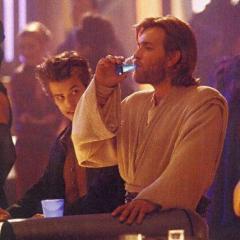
Williams' unrealized scores we know about
enderdrag64 and 5 others reacted to E-Wan for a topic
Here are extracts from Scott Bettencourt's six-part article called "TIMELINES: JOHN WILLIAMS" which was published on FSM website in 2007: 1974: Williams was originally announced to score Robert Altman's gambling drama, CALIFORNIA SPLIT, which featured his actress wife Barbara Ruick in a supporting role. Ruick died unexpectedly of a cerebral hemorrhage during the filming and Williams left the project, though despite his personal tragedy (which inspired his violin concerto), he kept working. 1976: Around the same time, Williams was announced to score Michael Winner's Satanic horror film THE SENTINEL, but wisely backed out at the last moment -- reportedly due to illness, but probably it was simply good sense, as anyone who has seen Winner's film can attest to. It was the first of many incidents were Williams would back out on a project that turned out to be a disaster. 1979: Williams was also announced to score two science-fiction films that proved to be expensive disasters. QUINTET was a bleak post-apocalyptic drama from Robert Altman, with memorable visuals but little in the way of narrative excitement or emotional involvement. It would have been fascinating to see what Williams could have done with such dark material -- especially since Williams' previous collaborations with Altman were so musically unusual -- but Williams left the project, and the striking score was written by Tom Pierson (who was later the music director for Altman's Popeye). METEOR was a big-budget disaster film with a George Pal flavor, but the troubled project ended up with a lengthy post-production period as the effects were redone (and still came out surprisingly cheap looking). Williams' departure may have been due to the scheduling delays, but it proved to be a commercially wise choice. Laurence Rosenthal's score had some fine passagea, especially his soaring main theme, and, ironically, unlike Dracula and 1941, his score was short-listed for the Oscar (in the last year of the Original Score shortlist) -- it was a rare year that Williams had new scores but no Oscar nominations. 1980: Around this time, Williams bailed on two particularly infamous flops. Michael Cimino's visually staggering HEAVEN'S GATE had Williams attached at one point (and Morricone was also considered for the project), but Williams wisely departed (leaving The Missouri Breaks as his final Western score to date), and Cimino went in a markedly different direction with the young composer David Mansfield, whose folksy score proved to be one of the film's most popular elements; he went on to score three more features for the controversial director. INCHON was an epic about a pivotal battle of the Korean War, financed by Reverend Sun Yung Moon, with Terence Young (From Russia with Love, Wait Until Dark) directing an all-star cast headed by Laurence Olivier as General MacArthur (no, really). The film's U.S. opening was delayed, as major subplots and characters were cut out completely, and it was released very briefly in the fall of 1982 before disappearing completely (as far as I know, it has never been released on video or cable). Jerry Goldsmith ultimately provided the score (which gave him the rare opportunity to write a second theme for MacArthur), a lively work which is practically the only thing about the movie that has survived. Considering how great a part of Superman's success his score was, it was only natural that he'd be invited to score SUPERMAN II, much of which was filmed concurrently with the first Superman (though Richard Lester replaced Richard Donner for the completion of the film), but ultimately the film was scored by Lester's regular composer Ken Thorne, basing virtually his entire score on Williams's themes and cues (effectively if unimaginatively). One of Superman's producers has claimed that Williams met with Lester about scoring the film but had such a negative reaction to the director that he turned the job down. Considering how famously easygoing both Lester and Williams are, this scenario is less than plausible -- it's far more likely that the Superman producers simply didn't want to pay Williams' fee (the Brando footage shot for Superman II was deleted for similar financial reasons, while Lester has said he worked on the Superman films mostly to get money owed to him by the producers from their Musketeers films). 1994: In the mid-90s, there were rumors that Williams was considering retirement (his leadership of the Boston Pops ended in 1993), and he didn't score any new films in 1994. He was originally announced to score Mike Nichols' offbeat werewolf thriller WOLF (which would have made a nice companion piece with Williams's Dracula and The Witches of Eastwick), but Williams ultimately left the project and Ennio Morricone wrote a typically striking score. 1999: Williams was originally announced to score Chris Columbus' megabudget project for 1999, the sci-fi comedy drama BICENTENNIAL MAN, with Robin Williams as a robot fighting for his rights as a sentient being, but the film ended up being scored by James Horner (and was a rare commercial failure for the director). Instead, Williams scored his only (to date) film for director Alan Parker, the underrated adaptation of Frank McCourt's best-selling memoir ANGELA'S ASHES.6 points -
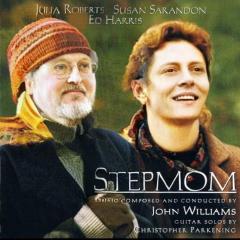
92nd Academy Awards (2020 ceremony for 2019 films)
Bilbo and 3 others reacted to Not Mr. Big for a topic
They'll play the trailer music4 points -
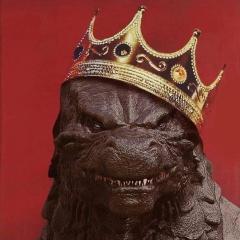
Star Wars Saga Could've Had Overtures
The Illustrious Jerry and 2 others reacted to Unlucky Bastard for a topic
3 points -
Whether he liked or not, surely that was Hamill’s performance of a career!3 points
-
His wins are technically nominations3 points
-
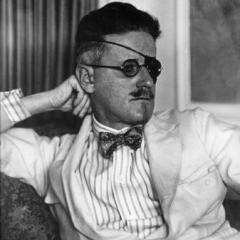
Why is it so hard for John Williams to collaborate with new directors?
wowbobwow and 2 others reacted to TheUlyssesian for a topic
Not many directors are in the market to purchase what Williams is selling. To be completely honest, I doubt very many people are asking JW to score their films. First, he's too expensive. Second, he will take his time. They can't do a hack job with him. They will have to give him the film months in advance in and give him time to write the score. Third, he will not do demos for you? Are you fucking kidding. Williams obviously reached that milestone decades ago but obviously nobody is going to dare ask JW to write demos before he is hired. Fourth, You cannot reject a Williams score. You will have to take what you get. He will make changes for sure but for the most part, he's written what he's written. Fifth, His score will most definitely not be a wallpaper. He is NOT going to give you suites to edit into your film as you want. He's going to honest to god score it with individuals cues for individual music. Sixth, his music will not disappear into the background. It will most definitely make its presence felt and will affect the scenes it is in. Seventh, it will likely be a "bigger" score than these film-makers are used to. There will be multiple themes etc. which will have to be placed right and the score will have to be properly handled. Eight, you will likely hear the score proper on the day you record it. For all the reasons, I think newer film-makers are intimidated. They want gutter trash trailer music garbage soundscape suites that they can demos of, play on set, cut the movie to and then apply in the background as needed. No headache. Who's going to do a spotting session? And wait for the score for months? Without demos? And who's going to do a complex edit of getting the score in and potentially re-editing the movie, and redoing the mix etc. etc. Basically, it is beyond the skill, capability or ambition of these film-makers to actually work John Williams to create a score for their films.3 points -

Hans Zimmer's top 40 film scores of all time - he included 2 John Williams scores
_deleted_ and 2 others reacted to TheUlyssesian for a topic
Isn't it mostly just concert arrangements? It's basically theme tracks or main titles or end titles for the most part. Hans picked these because he composes just those - the demos. He does not actually seem to actually "score" any scenes with scene specific music or variation or adaptation or anything of the like.3 points -
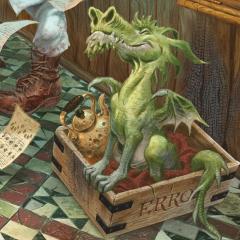
John Williams cameo in The Rise of Skywalker
Cerebral Cortex and 2 others reacted to crlbrg for a topic
3 points -
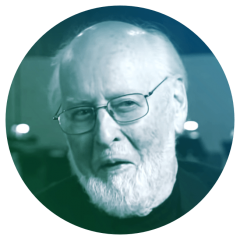
John Williams & the Vienna Philharmonic: January 18/19 2020
Cerebral Cortex and one other reacted to toothless for a topic
2 points -
@Hedji@Will ROTJ:2 points
-
@HedjiYou reminded me of these old Overture/Intermezzo mashup edits using the concert suites/end credits that I did:2 points
-
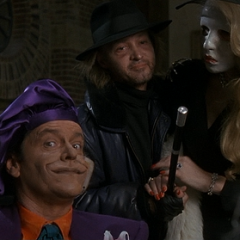
Star Trek: Picard (2020 TV Series)
Cerebral Cortex and one other reacted to Gruesome Son of a Bitch for a topic
I'm okay with it not feeling like TNG.2 points -

Star Trek: Picard (2020 TV Series)
Bryant Burnette and one other reacted to BLUMENKOHL for a topic
I hate you for sharing that. I'm going to go sob in a corner for the next three hours. This directionless drivel we're getting from Jeff "Mom Bought Me a Mac With GarageBand On It" Russo is a true shame.2 points -
On TFA, I didn't liked how the character's arcs were handled, but then when I watched TLJ, I thought it improved the characters greatly. On the first movie, Finn abandoned the First Order after his first time on a conflict - about 20 minutes later, actually, which is weird, but anyway. But then, on TLJ, by the beginning of the movie, he sees that the Resistance almost being annihilated and he decides to abandon then as well. I thought this was more consistent with how he was introduced. Whether fighting for the First Order or the Resistance, by that point Finn doesn't exactly have a side on that conflict. Basically, he just wants that he and his friends survive. Is it coward? Probably, but also consistent with the character. Then, during TLJ, he sees how the galaxy has been oppressed, how terrible life is for a lot of its citizens, and he decides to take a stand, to fight, to inspire. His arc with Rose helps the character grow and overcome his flaws, to become the best fighter for the Resistance. Unfortunately, TROS didn't continue this arc of growth, but anyway. As for Poe, on the first movie we only know him as hotshot pilot, who is trusted by Leia and commands the Resistance pilots during battles. Cool, but thin as a paper. Then, on TLJ, he learns that he still have a lot to learn on how to best face the enemy, how to be a leader for its soldiers even in face of unfavorable odds - which he does, by the end of the movie ("Why are you looking at me? Follow him!"). In some ways, TLJ is about errors, failures, defeat, but also about growth despite the defeats. Our characters, Rey, Poe, Finn, Kylo, Luke, they all fail because of their personal flaws, but they (at least the heroes) learn how to overcome their flaws in order to become better people and better help their cause.2 points
-
He called out Shawshank as one of his favorites to Newman himself when they were on an Oscar roundtable together. Also he and Henry Jackman fawned over Predator 2 to Silvestri immediately before that, and I see the first Predator makes the list here. Very sweet! It's a nice list. Distributes the wealth, two solid JW picks. And yeah, interesting that Goldenthal and Goldsmith are the two that he just couldn't narrow down. Also I like the spread of the timeline. From King Kong all the way up to Red Sparrow!2 points
-
I liked how the SE's presented them like intermezzos/Ent'racte2 points
-
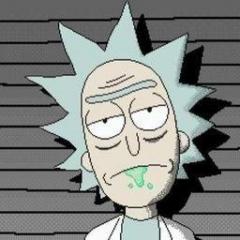
Williams' unrealized scores we know about
DrTenma and one other reacted to Ricardo Mortimer for a topic
I know about Superman 2: Composer John Williams was originally slated to score Superman II in which he was given a screening with Ilya Salkind and Richard Lester. When Salkind left the projection room, Williams and Lester fell into an argument, and when Salkind returned, Williams told him that he "could not get along with this man". To take his place, Richard Lester's frequent composer Ken Thorne was selected to score the sequel. (Wikipedia) I want to see someone argue with him or how Williams yell at someone2 points -
Thanks! I based the Yoda theme placement on Rozsa's Quo Vadis:1 point
-
I'm bewildered by it all too. Some of the most powerful moments in cinema for me personally are accompanied by amazing renditions of themes that are established, then grow throughout the film, and by the big moment they MEAN something. I mean this moment here for example, would not do what it does without the powerful theme statement, and even if it was there, it still wouldn't work as well unless you use and establish that theme throughout. Because we've heard it used so well throughout the series, when we get here, to this point, it MEANS something. It hits you, because of the music. Because the music and that melody mean something to the viewer by now. I don't know why people are moving away from this type of scoring, I mean viewer-wise. I almost get the sense from some people that having themes and strong melodies are not only distracting, but sometimes even cheesy? If that makes sense? I don't know. I am as baffled as you seem to be by it.1 point
-
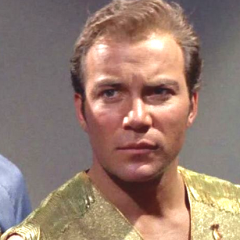
Star Wars Saga Could've Had Overtures
Smeltington reacted to Pellaeon for a topic
When rewatching the movies, I do like to play an “Overture”. However, for me it doesn’t have to be a single movement, it can be a longer suite. Star Wars: Princess Leia’s Theme The Empire Strikes Back: The Imperial March Yoda’s Theme Han Solo and the Princess (Gerhardt) The Carbonite Maneuver: Jabba the Hutt (Skywalker Symphony) Return of the Jedi: Parade of the Ewoks Luke and Leia Forest Battle The Force Awakens: March of the Resistance Rey’s Theme Scherzo for X-Wings The Jedi Steps I don’t rewatch any of the others. I like to split RotJ into two viewings. I also like to listen to the New Han and Leia arrangement after the TFA Finale.1 point -
I've heard outdated sort of through proxy. A lot of people I talk to about film music nowadays, and I'm talking casual listeners here, seem to prefer the, what I call, "Mood and Tone" scores. They lack big and powerful melodies, but excel in providing a general mood and tone for the scene. This is really really the way things are going more recently. About 10 years ago if you asked me at the end of the year what film scores I loved, I'd have a decent sized list, but since then, the list keeps dwindling in size. Like, don't get me wrong, there's plenty of recent scores that have come out that I like and enjoy listening to. I don't love them though or connect with them as deeply. As much as some people seem to dislike Giacchino around here, his Trek scores still had great melody, themes, and motifs, and I connect with them greatly, but even he has sort of fallen off a bit for me. So I guess for most people I talk to, in person, consistently, he's sort of...out of style? Which is sort of like saying he's outdated. I mean I worked as editor on a commercial recently and had Back to the Future in the temp score and it was called "distracting" and I was asked to move towards a more atmospheric and general approach. It wasn't the main melody or anything that would be considered to recognizable, that wasn't the reason. That being said, it was the right call, but I can't help but feel that more and more people are finding themes and melody or even just lush orchestration to be "distracting". It seems in some movies now, the dialog is the "melody" and the film score in a bunch of chords in the background or a repeating ostinato or a very sparse melody. Let's see. Recently, I've liked Stranger Things 3, Mr. Robot, Jurassic World: Fallen Kingdom, Dark Crystal (Netflix), Knives Out, Godzilla: King of the Monsters, The Dragon Prince, etc. just to name a few recents in my iTunes purchases. I like them, particularly Dragon Prince out of that bunch. I listen to them, but the last time I really remember a film score having a HUGE impact on me in the theater was 2015 in The Force Awakens. The scene with the cue "The Resistance" So good. I got goosebumps the first time I saw that and even a few rewatches after. I personally want more moments like that in films, where the themes help drive the story and can make GREAT moments like that and really make you feel something. It still happens. I mean we've gotten Star Wars films, How to Train Your Dragon, Good Omens has a great theme, etc. etc. but it's becoming more rare in my opinion. It's not gone, but it's starting to dwindle I feel. Don't get me wrong, I don't want to sound alarmist or make it seem like I think all film music is garbage now or something, but there is certainly a shift happening. So after that long-winded expelling of thoughts...I think when melody, motifs, themes, etc start being considered "distracting" is also the same time that Williams becomes more and more "outdated" to most people. As someone who's composed a couple projects, short films, theatre productions, etc. I always aspire to create themes and motifs for characters and ideas, but feel like I need to lean more atmospheric and general to get selected or have my work used. Idk man. Interesting topic though. Haha. Yes I feel like Zimmer has been one of the driving forces to what I mentioned above. Don't get me wrong, I listen to and like some of his recent music. It's (in some cases) fun to listen to. I'm a sucker for fun "techy" music (for example Escape from the Ship from Man of Steel or tracks from Inception) but I don't really connect with his stuff over the last several years. I enjoy it, but it doesn't make me feel the way I described that I want more film music to make me feel. With a few exceptions, Zimmer's music certainly isn't "distracting" in most of the projects he does.1 point
-
The music for the opening crawl of the original Star Wars is a sort-of overture, but because that simply got replicated for future episodes, they don't each have a distinct overture. Star Wars wasn't really a throwback to the kinds of films that had overtures, though. It owes much more to campy serials than it does to big-screen epics. Musically, Williams arranged the album of The Phantom Menace to have the concert arrangements at the top of the presentation, after the manner of an overture. Its a smart way to acknowledge it as the "first" score in the cycle, I thought.1 point
-
I think of Finn’s best use is being Rey’s closest friend, the one really looking out for her and concerned about her Dark Side issues, the audience’s “Samwise” type character — the POV character, the down-to-earth guy with no bloodline. I thought TRoS did this to some extent, but I would have preferred if he had been by Rey’s side during the last act rather than relegated to a B-plot. (The “revolution” storyline would have just been a B-plot too, if more glamorous.)1 point
-
The symbol that can be seen inside the lens could be Harry Potter's scar.1 point
-

Prisoner of Azkaban cue sheet?
bollemanneke reacted to crumbs for a topic
Out of interest, do you know if the added percussion (a change made by the sound department when this cue got tracked, not by JW) was transcribed into the LTP performances? Specifically the tambourine.1 point -
Heaven's Gate would be my choice out of these.1 point
-
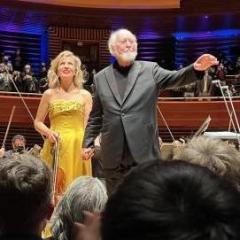
John Williams cameo in The Rise of Skywalker
mrbellamy reacted to Taikomochi for a topic
He was nominated for ESB. They reference his nominations, not his wins, unless I’m misunderstanding the point being made here1 point -

Williams' unrealized scores we know about
Tydirium reacted to Ricardo Mortimer for a topic
I can imagine that music, something like constant The Flag Parade style, you know I thought I will write to him about Cleopatra and fans' wishes.1 point -

Williams' unrealized scores we know about
Sandor reacted to Gruesome Son of a Bitch for a topic
A seemingly accurate book on the making of Titanic I read years ago did claim that Cameron wanted JW to do it, but he was too busy. Early previews for the movie were temp-tracked with Far and Away music, including the Enya song. Allegedly, Horner really wanted to do Titanic and sweet-talked his way into it.1 point -

John Williams & the Vienna Philharmonic: January 18/19 2020
Martinland reacted to crlbrg for a topic
Nothing new, as far as social media goes.1 point -
Honestly, I like pretty much how John Williams handled his career. Looking at his IMDB.. all the movies he did since the 70 are almost all great pieces of arts. (ok, SW1-2-3 are not so great... but it is star wars nevertheless) Why want more collaborations with directors when you have Steven Spielberg? If you look at Alexandre Desplat or any other "i'm doing 8 movies a year" composer, frankly you can throw half of the movies, they wont stand the time. Half of the movies are so-so. What's the point of making 6 movies a year if you are only doing 1 great score every 3 years? Quality VS Quantity. I have the feeling these over-busy film composers have to do so many movies because either budgets are shrinking, or also because they feel they HAVE to maintain relationships with directors. But I can understand John Williams. It's nearly impossible to maintain a true and deep relationship with more than 2 directors while still making scores the way JW does scores. JW scores are high-level gastronomy or painting that would be exposed in great museums. They are not fast-food soundtracks. I remember reading somewhere, but cant remember where now, that John Williams writes 1 minute of score everyday. Only one minute. Because his music is so refined, detailed. And he writes every cues. That takes a lot of time. Another possibiliy is also the movie industry changing. Movies are not the same anymore, and don't necessary need the same kind of scores. It saddens me, but it's a true fact. Also, supporting a john williams score as a director must be frightening. Also, discovering how the score sounds only the first day of a recording session, like (I believe) John Williams do, is something that can't be done anymore. Ok, nowadays they may do some virtual mockups of John Williams scores to show to the director, but i'm not even sure they do mockups of JW. To finish, recording an orchestra with Williams must be so expensive. I've read that Star Wars or Harry Potter in abbey road took more than 12 days to record whereas your usual 2020 hollywood score is recorded in 1 or 2 days.1 point
-
Bombshell It's no Big Short. A bit too stale and muted for that, but it has its moments, where you get a sense of the culture of defending creeps over at Fox at the time. Lithgow as a shouty Ailes nails it, and Theron disappears into Kelly, even if its a little too calculated in my opinion. But the whole thing is just kind of flat. The score had some interesting moments though. Burning A much subtler slice of auteurship than South Korea's more popular Parasite. Lee Chang-dong has a more dreamy language to his storytelling. This film is not interested in providing answers, but does ask for an attention to detail so that we probe deeper into its characters over the mystery it's built on. Beautifully shot, there is clearly a lot of great work happening in South Korean cinema.1 point
-
Visit @Bespin's Williams Discography HERE and search the page for the word "consideration".1 point
-
Bonding with the Hippogriff is a cue JW wrote for the scene with Harry and Buckbeak after their flight; it went unused in the final cut so isn't on the BMI cue list, the sheet music for it didn't leak either for whatever reason. It is, however, included in the LLL set at the end of the track "Befriending the Hippogriff" JW never wrote a cue called Sir Cadogan Again. What happened was, he wrote a cue called Sir Cadogan meant to go with the Sir Cadogan scene, the scene that ended up getting cut completely from the final film. Later, when the cue got tracked into the end of the film in between Lupin's Departure and A New Broomstick, they put "Sir Cadogan" on the cue list there, cause that's what the music that plays there is called. But then it ALSO go tracked into the scene where the ghosts bust through the stained glass in between the aforementioned unscored bonding scene and Kids Inspect newspaper, so they put "Sir Cadogan Again" on the cue sheet since "Sir Cadogan" had already been used. So, it seems when preparing the Live to Projection concerts, they had to give some name to the little tambourine ditty that plays at the end of the bonding scene, so went with Bonding with the Hippogriff since that's the name of the William score cue that was intended to play there. I hope that clears everything up for you1 point
-
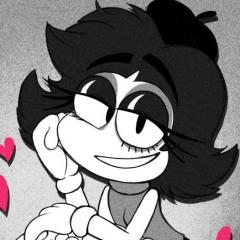
John Powell's CALL OF THE WILD (2020)
Will reacted to Kasey Kockroach for a topic
1 point -
You can hear it during the first minute or so of this youtube video, it continues even after Discussing Black begins around 40 seconds in1 point
-
If they did all that for the scene, they could have let it last a little bit longer than 3 seconds. But then again, that's a general problem with the film.1 point
-
The Lord of the Rings: The Fellowship of the Ring (Complete Recordings) by Howard Shore: I listened to the last 25 minutes of the score from Parth Galen up until the end credits on my way to work. Still bloody glorious and has such amazing musical flow in how Shore employs his thematic ideas throughout. I really should have the Lord of the Rings complete recordings marathon this weekend. It has been a while since I listened them in their entirety.1 point
-

John Williams cameo in The Rise of Skywalker
tmarps reacted to Taikomochi for a topic
I guess technically the scene references his 52nd nomination as well1 point -
.thumb.gif.df2a851b259fbffe34b18fc1c796422a.gif)
The Rise of Skywalker SPOILERS ALLOWED discussion thread
DarthDementous reacted to Cerebral Cortex for a topic
Trevorrow's idea of Finn leading a rebellion of defected stormtroopers to fight against the First Order and the opulent greed of the higher-ups in a battle at Coruscant seems like such a logical next step for his character. Not all of his ideas for Episode IX sit right with me, but that's a great one. I mean, there's that one line about Jannah being a former stormtrooper in Episode IX, sure, fine. Does the film even remember that fact past the one scene she mentions it in? No.1 point -
1917 One-shot (actually, two) gimmick is gimmick, who would’ve guessed... It works in moments though: By far the best compositional choice of the whole of the piece happens early, when the two soldiers set off, and by far the most arresting shot is early in the night scene, where there’s what can only be described as a symphony of alternating light and shadows. A precious few moments of humanity work, too, but aren’t enough to fully elevate this beyond Oscar-munching. Liked it. ***1/2 out of *****1 point
-
1 point
-
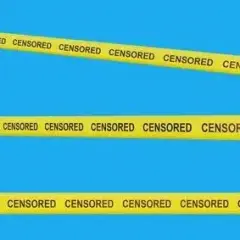
John Williams cameo in The Rise of Skywalker
tmarps reacted to Jurassic Shark for a topic
So that's why the production ran short on time.1 point -
Between the approving comparisons of writers for the Washington Post -- a "dirt sheet" to which I now proudly count myself as a contributor! -- to literal Nazis, to what I can only interpret as a mocking emulation of a gay lisp in several above posts, this thread is getting really gross. I mentioned it up-thread, but when you see yourself implicitly compared to Joseph Goebbels, when that man was in fact responsible in part for murdering members of your family, then you begin to wonder whether this is an online community you want to participate in. The article in question is misguided and intellectually embarrassing enough as it is without these shit-posts. There's plenty of solid dismantling of its stupidity done a rhetorically responsible way in this thread and for that I'm grateful. You can criticize bad music analysis without resorting to infantile homophobia or your personal political axe-grinding.1 point
-
If anyone sees an action figure of Oma Tres let us know the Hasbro 4 inch line should have one evetually1 point
-
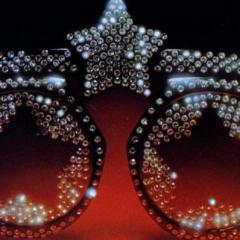
John Williams cameo in The Rise of Skywalker
Remco reacted to Nick Parker for a topic
Yeah! I wish Lucas still had the rights to the original movies so he could go back to the cantina and delete all those pointless shots of the aliens that are just there.1 point -
I just discovered that every season of the Dukes of Hazzard is streaming on Prime! I know what I’m doing with my free and clear evenings from now on. Already watched one episode. Man I have such a soft spot for this stupid old show.1 point

